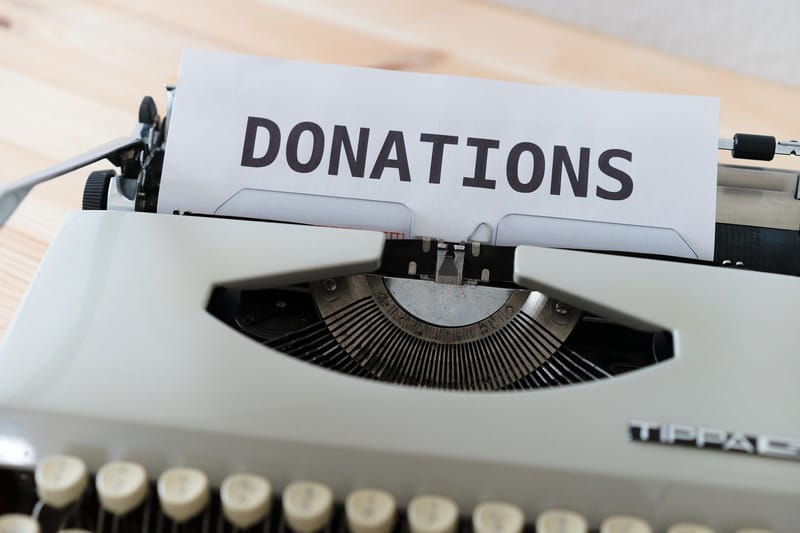Donating to a Charity

Can I get a tax break for charitable donations?
If you have some unwanted items that you aren't sure what to do with, you can get a tax break for donating them to a qualified charity or organization. You can donate used household items, collectible items, even clothes. If you have more extra time than property, volunteering expenses are also deductible.
Qualified charitable organizations
When donating, make sure it's to a qualified charity. Charities must meet IRS requirements in order to receive tax-deductible donations. The charities may be one of the following types:
- Religious
- Charitable
- Scientific, literary, and educational
- Dedicated to the prevention of cruelty to children or animals
For a full list of charities, and to see if a certain organization meets the cut, use the IRS's Exempt Organizations Select Check.
Keeping a record of charitable donations
When donating any item, make sure you get a receipt or acknowledgment from the charity. This is especially true for any donation – cash or goods – over $250. If you plan to take the $300 above-the-line deduction available for tax year 2020 (due to the CARES Act), you need to keep receipts for any cash donations that could qualify you for that deduction.
The receipt or acknowledgment should have at least the following:
- Name of charity
- Your name
- Date of donation
- Fair market value of donation
- Value of any goods or services you received in return for your donation
Donating household and other goods
Items like used clothing and household items can only be deducted if they’re in good used condition – no broken items or tattered clothes. Household items are priced at fair market value, not at what you paid for them.
For most household items, fair market value is what the item would sell for at a consignment or thrift store. Some charities, like the Salvation Army and Goodwill, have a donation value guide, but most don’t. For more information, check out IRS Publication 561.
Depending on the value of your donation, you may have to have it professionally appraised before donating it. Items like jewelry, collectible cars, art, and antiques may or may not need appraising.
Deducting volunteer work
You may have had some expenses while volunteering throughout the year. You may be able to deduct those expenses, provided that the primary purpose of the expense was for the charitable organization and its work.
If you drove for your charity – not going to or from – you can deduct your mileage at 14 cents per mile. You can also deduct any costs for purchasing or cleaning a required uniform to perform services for the charity. Any lodging, meals, or transportation expenses required as part of your service can be deducted, as long as the primary reason for the expenses are for the charity and are not personal.
As with donating goods, keep any receipts or paperwork in order to prove your deduction.
Donating cash
If you plan on donating money – whether it's by cash, check or credit card – you’ll need a receipt. A cancelled check or credit card statement isn’t enough. You need to have a receipt, especially if you donate more than $250. The receipt can be paper or electronic but must include the amount donated, date, and the charity’s name.
For more information about donating to charities, see IRS Publication 526.
Claiming donations is easy with Tax Office & Associates™
Whether you claim the itemized charitable deduction or the $300 above-the-line deduction, Tax Office & Associates™ makes filing your tax return simple and straightforward! Call us today to get started!


